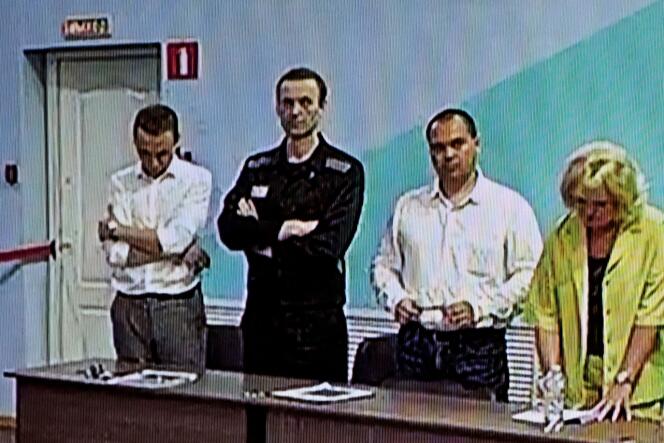


The severity of the sentence was to be expected. At midday on Friday, August 4, Russia's leading opponent to President Vladimir Putin, Alexei Navalny, was sentenced to 19 years in prison in a "special regime" penal colony, for "extremism." Navalny listened remotely from prison as the verdict was delivered by Moscow City Court. The hearing lasted just 15 minutes.
On the eve of the verdict, the 47-year-old convict, who has been behind bars for the past two years, had correctly predicted the outcome: It was going to be a "huge [sentence]... a Stalinist term," the oppositionist said on his Telegram channel. "The formula to calculate [the sentence] is simple: what the prosecutor asked for, minus 10%-15%. They asked for 20 [years], they will give 18 [years] or something like that. It doesn't really matter, because a terrorism case is already coming thick and fast. They can give me another 10 [years]."
The Russian opposition leader invited his supporters to "reflect" on the meaning of the inevitable heavy sentence. He told them the purpose of the new prison sentence was "to intimidate you, not me," adding that he considers it "shameful" to allow himself to be intimidated.
The 19 years in prison correspond to the total time Navalny will have to spend in the penal colony, by virtue of sentences already handed down. Previously, he had been sentenced to nine years in a colony for fraud in the Yves Rocher case and for contempt of court.
The hearing – with the exception of the judges, who remained in Moscow – took place on the grounds of penal colony No. 6 (IK-6) in the Vladimir region, 250 kilometers east of Moscow, where Navalny has been serving his nine-year sentence. The press – some 50 journalists who had traveled from Moscow by train – were parked in another small room from where they could watch the almost-inaudible hearing broadcast onto a TV screen.
Navalny, his defense team, a co-defendant and a man in a prison guard's uniform appeared behind a row of three conjoined plywood desks, virtually the only furnishings in a room with high, austere-looking walls.
According to Navalny's supporters, the judicial harassment has had the aim of removing him from Russian political life for good. Ivan Jdanov, one of Navalny's closest allies, who is currently in exile, reacted to the conviction by listing the six articles of the Russian criminal code under which the opposition figure has been imprisoned: "Creation of a non-profit organization undermining citizens' rights"; "financing extremism" and "organization of an extremist community," in reference to the Anti-Corruption Foundation (in Russian: FBK) headed by Navalny; "public appeals to extremism," based on online publications by an FBK cameraman and a speech by a rally participant in Ufa in 2017; and "involvement of minors in the commission of acts dangerous to life," due to their participation in demonstrations that Navalny had called for.
You have 35.05% of this article left to read. The rest is for subscribers only.
